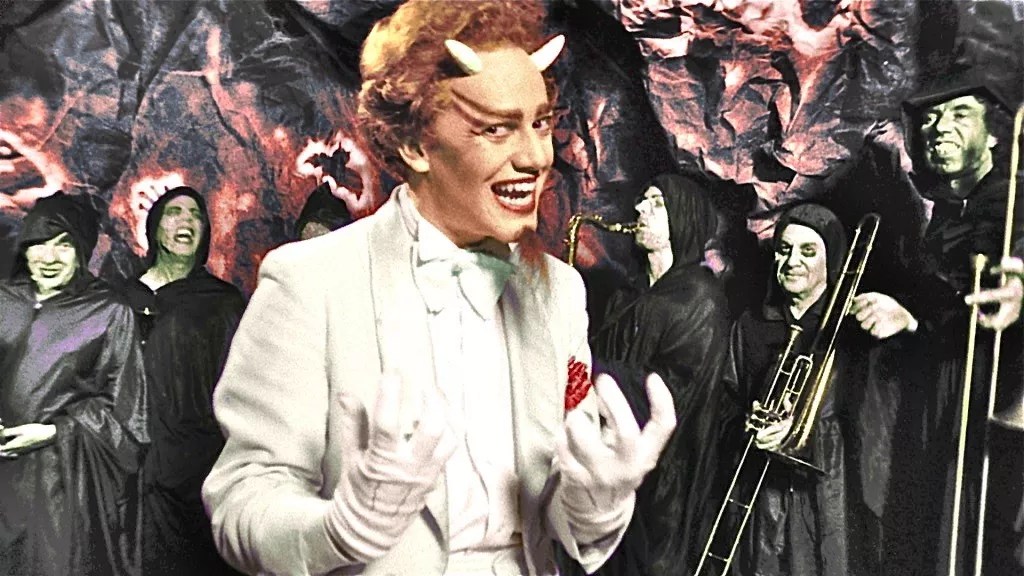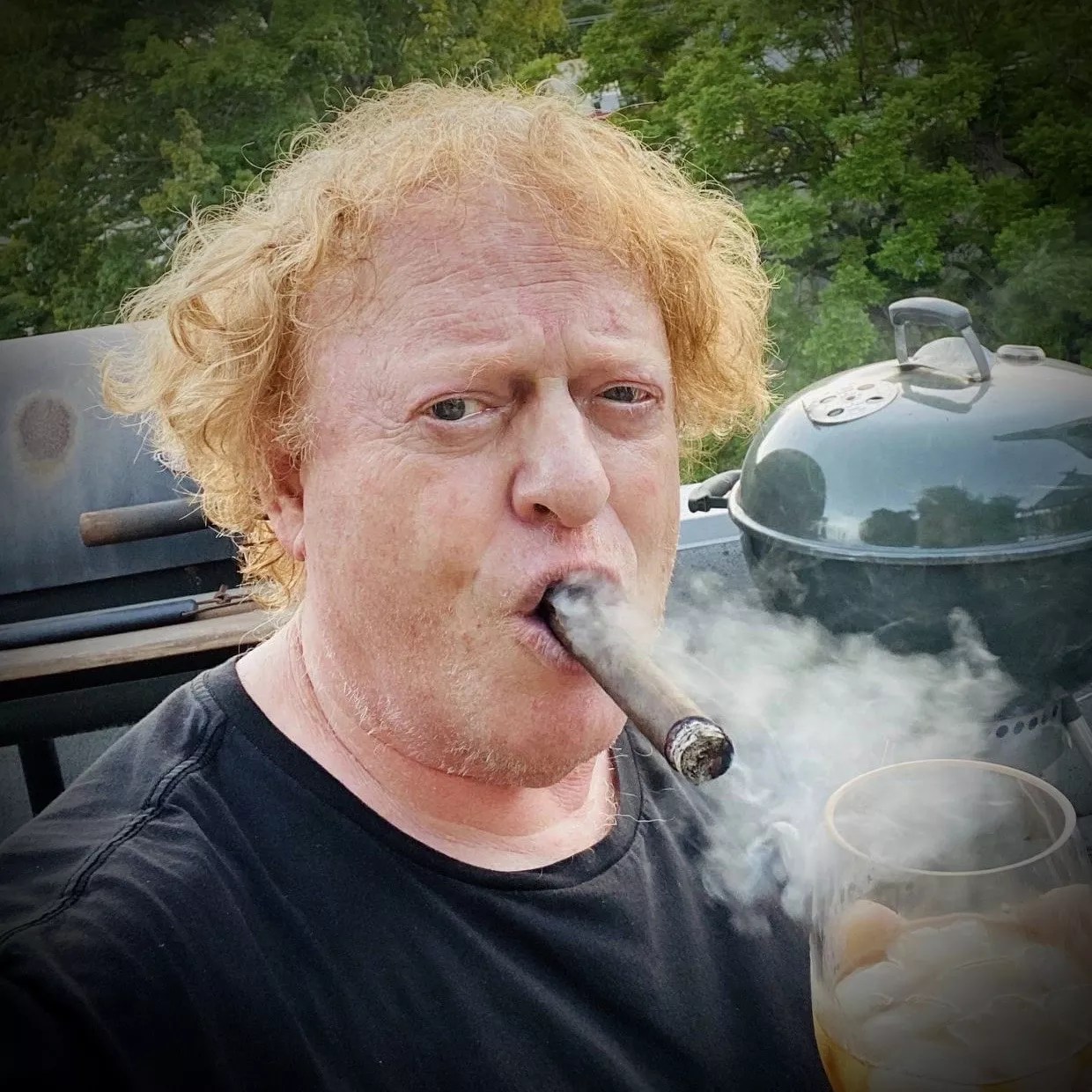
Greg Sandor

Audio By Carbonatix
Somehow words like “weird” or “absurd” really don’t do justice to the cult classic Forbidden Zone. directed by musician, food and wine columnist, and filmmaker Richard Elfman. It’s just one of those movies where you have to sit down, strap in and take the ride, no matter where you end up.
Forbidden Zone feels like it has everything that Hollywood hates in a film project: absurd imagery, deep cultural themes and sights that make test audiences feel confused. Fighting to keep your vision on film even if it’s an independent production is a hard lawn to mow, and it’s taken years for Elfman to deliver the cut he intended more than four decades ago. He’s bringing his updated, colorized cut of Forbidden Zone to the Texas Theatre on Saturday, Oct. 7, for a special screening.
“Doing anything original or really different is generally difficult,” Elfman says. “My new quirky horror/comedy Bloody Bridget has been winning audience awards and literally bringing the house down at film festivals, but we still can’t get into some of the big genre fests. Just too different and too entertaining, I guess.”

Director Richard Elfman will be at the Texas Theatre on Saturday for a director’s cut screening of his 1982 cult classic Forbidden Zone.
Anastasia Elfman
Richard Elfman and his younger brother, Danny, founded a “comedia del arte” music troupe, The Mystic Knights of the Oingo Boingo, in Los Angeles that dropped the first part of its name and evolved into the quirky ’80s rock band Oingo Boingo. Elfman says the group’s absurdist noise aesthetic was inspired by his theatrical explorations in Europe, mixed with song staples from the Harlem Renaissance – songs that would eventually have starring roles in Forbidden Zone‘s eclectic soundtrack.
“The Mystic Knights were inspired by my previous years in France with the musical/comedy troupe Le Grand Magic Circus,” Elfman says. “Director Jérôme Savary went on to direct the French National Theatre. An undertone of Jérôme’s comic absurdism resonated with me and music has always been a major influence. Along with Danny’s original work, I like to share timeless classics – one of the reasons for Forbidden Zone‘s enduring presence – and, of course, the Three Stooges, Max Fleischer, German expressionism and throw in some Johnnie Walker Black.”
Forbidden Zone is a black-and-white, whacked-out Wizard of Oz-esque story if L. Frank Baum had taken fantasy absurdism to the furthest corners of his mind. A family living in a drug dealer’s house – one that looks like Ernie Kovacs did the interior decorating – discovers an intestinal portal that takes them to the Sixth Dimension. Every inch of the Elfmans’ universe is bathed in absurdism – from a conformist school populated by students who wear rubber bands over their noses and gun fights that break out during spelling lessons to talking chickens that give wise advice to underwear-clad protagonist Squeezeit, played by Matthew Bright.
The Forbidden Zone is ruled by a pint-sized king played by Fantasy Island star Hervé Villechaize and his power-hungry queen, played by Susan Tyrrell. The royals have a giant human-frog hybrid as their servant.
“I’ve done three films where I wasn’t a ‘hired gun’ but let’s say were 100% Richard Elfman: Forbidden Zone; Aliens, Clowns & Geeks and Bloody Bridget,” Elfman says. “My own quirky style done totally outside the system. All three took more than a bit of sacrifice to make.”
Bringing a vision to life on your own terms is a huge challenge even if no one is standing in your way. Elfman says he and his crew worked around the clock to build and shoot the complex sets.
“We shot during the day and painted sets at night,” he says of The Forbidden Zone. “Some would sleep in the gorilla suits to keep warm. Too damn funny. By the way, Hervé Villechaize, our diminutive King Fausto, would come weekends to help paint sets.”
The film didn’t make a dent in the box office in 1982. Elfman says some college campuses banned the movie, and one of the first LA screenings attracted an arson threat that cleared the theater. Forbidden Zone‘s lack of success bankrupted Elfman, causing him to lose his house. The music rights prevented the film from finding an audience on the home video market. Forbidden Zone eventually found its audience thanks to the underground tape circuit, turning the Elfmans’ vision into a midnight movie staple. The rights finally landed back in Richard Elfman’s control in 2008, allowing him to create an updated version in color and even produce a crowdfunded sequel a few years later.
“When I put my first website up around 20 years later, I was kind of shocked to find thousands of Forbidden Zone fans from all around the world,” the director says. “Apparently it was a bootleg favorite at colleges.”
Elfman also took advantage of new digital film technology and control of the film to update it for modern theaters, where it continues to find new generations of fans 40 years later.
“When I wrote the script, it was kind of a crazy fever dream, everything and the kitchen sink,” he says. “By the time we had our first public test screening, I realized there were a few particularly offensive images that I regretted putting in. I wanted to fix that but two factors prevented me: I had lost financial control of the film and digital technology hadn’t yet been invented. Amazing that 40 years later, I could finally make the fixes.”